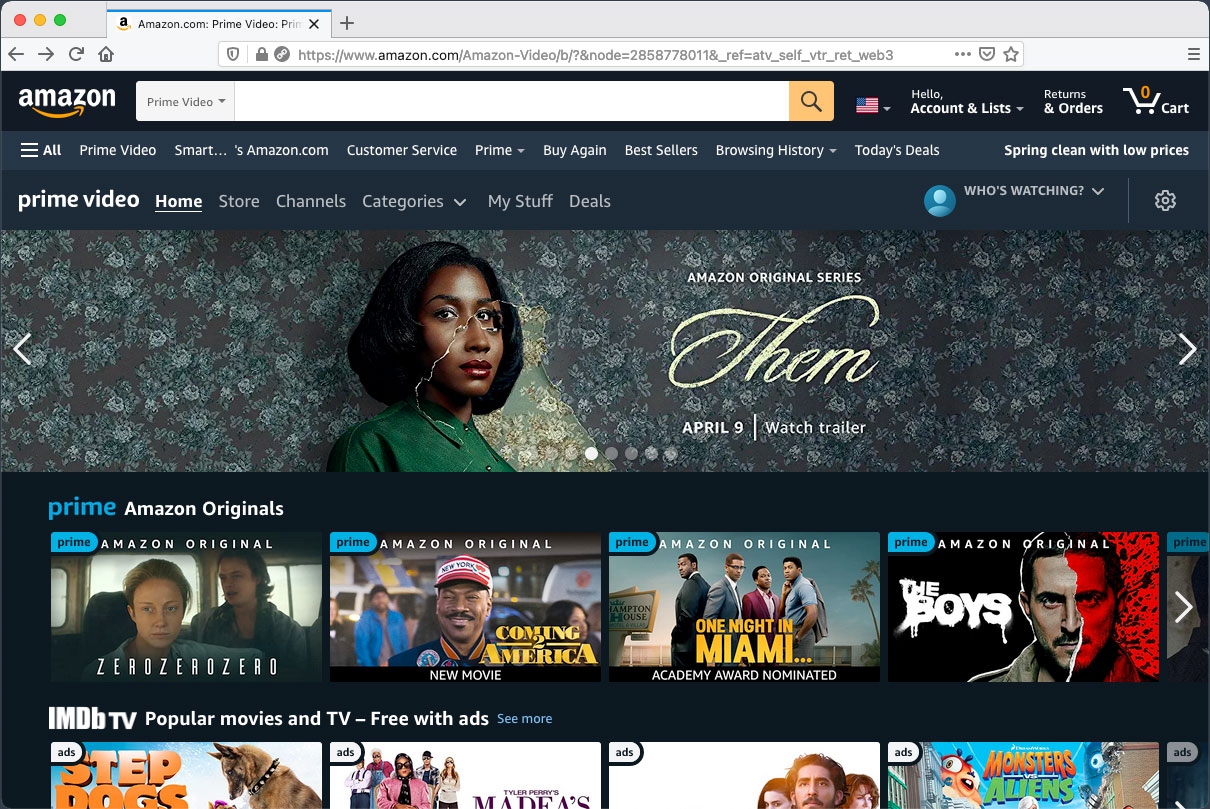Amazon Prime VPN: How to Watch it Anywhere

Watch Amazon Prime Video with a VPN in 3 easy steps
Sign up for CactusVPN.
All plans come with a
30-day money-back guarantee.
Download the CactusVPN app.
Available for PC / Mac / iOS
Android / Fire TV
Enable Smart DNS.
That’s it – head to Amazon Prime Video
and have fun!
On what devices can I watch
Amazon Prime Video with CactusVPN?
Windows
macOS
iOS
Android
Android TV
Amazon
Fire TV
Fire TV
Stick
Samsung
Smart TV
LG TV
Apple TV
Roku
PlayStation
XBOX
Linux
Ubuntu
Why CactusVPN is the Best Amazon Prime Video VPN?
User-Friendly Apps
for Your Favorite Devices
Connect to Smart DNS and watch Amazon Prime abroad in seconds with our easy to use apps. Absolutely no technical knowledge required.
Unlimited
Bandwidth and Speed
Enjoy smooth browsing, downloads, and streaming thanks to our high-speed servers that don’t have any bandwidth caps
Unlimited Devices
At the Same Time
You can use as many devices as you want as long as they are in the same network and have the same external IP.
Frequently asked questions
The service normally works worldwide with a few exceptions. However, you can encounter issues when trying to watch Amazon Prime video content.
Here’s the thing – according to Amazon, you can stream video content while abroad, but only “selected Amazon Original titles.” So not everything you want.
What’s more, Amazon also makes it clear you’ll have access to “a reduced selection of Prime Video titles.”
So yeah, you can watch Amazon Prime abroad – but not all of it.
Why is that?
Likely because Amazon needs to respect copyright agreements, or they don’t want to pay licensing rights in every single country. So they just use geo-blocks to stop you from watching certain content if you’re not in the US.
A Smart DNS hides your geo-location, but it does it differently than a VPN. Instead of hiding your IP, it tweaks your DNS queries to make sure there’s no data that could be linked to the country where you’re from.
These services also change your DNS address (so that you’re not using your ISP’s DNS server), and send your traffic through proxy servers in countries where Amazon Prime (or any other site you want to unblock) is available.
Unlike VPNs, Smart DNS services don’t encrypt your traffic. Many people like that, however, since it means their streaming speeds won’t slow down.
A proxy server works just like a VPN in this case – it hides your IP address to help you bypass geo-restrictions. Here’s how it works in a nutshell: the server will act as a middleman between you and Amazon Prime. It will intercept your connection requests, hide your IP address, and forward them to the website on your behalf.
Besides that, the proxy will also save requested web pages on its local cache. If you’ll request saved content, it will deliver it faster to you. So you’ll basically get quicker load times.
VPNs are online services that hide your IP address. That’s exactly what you need to unblock Amazon Prime overseas.
How do you use an Amazon Prime VPN to unblock all the content you want? Just connect to a US server, and you’re good to go – it will automatically replace your IP address with its own address when the connection is established.
On top of that, a VPN also encrypts your traffic to hide your browsing activities from ISPs, government surveillance agencies, and network admins.
- VPNs can help you get around firewalls and geo-blocks, and they can also prevent bandwidth throttling since they encrypt your traffic. On top of that, they offer a lot of privacy. But they can lower your online speeds.
- Like VPNs, proxies help you bypass firewalls and geo-blocks. But they don’t offer the same level of security, so you might experience bandwidth throttling + network admins will see you circumventing firewalls.
- Smart DNS services don’t offer any encryption, so you don’t get security but you can enjoy your original ISP speeds.
